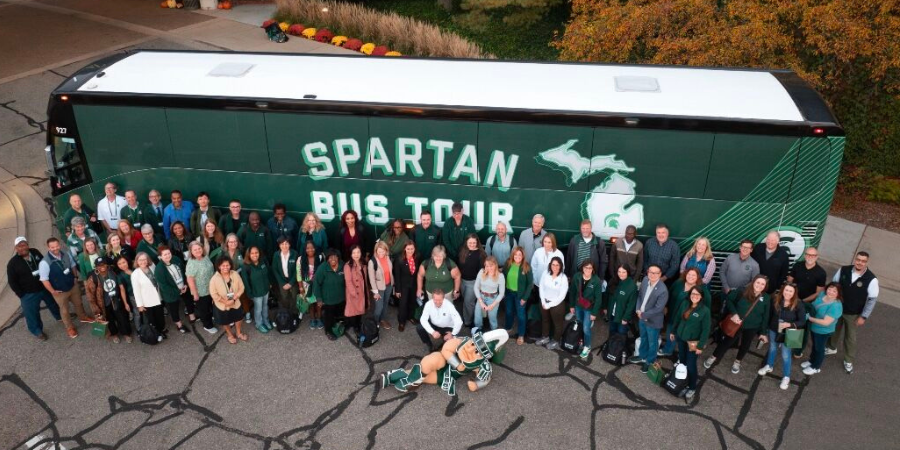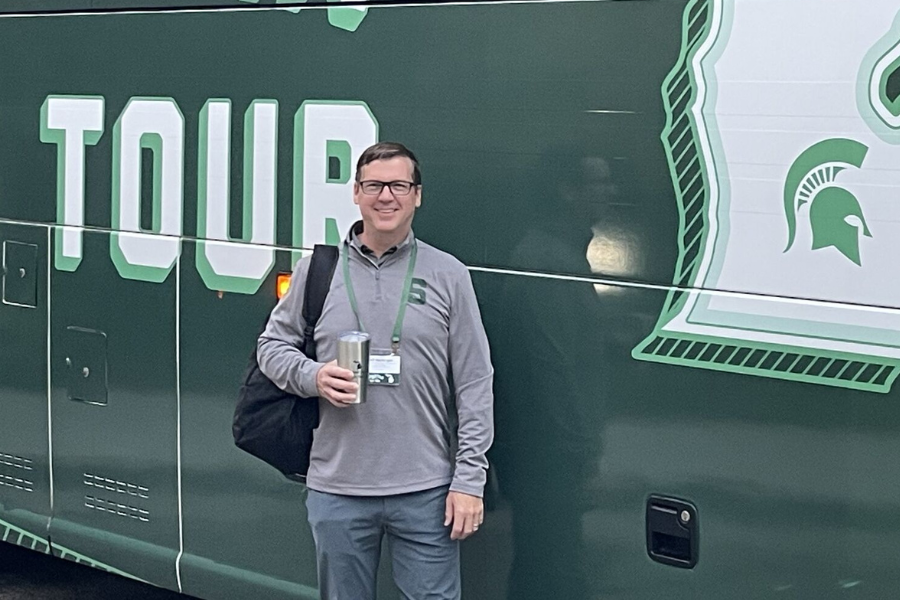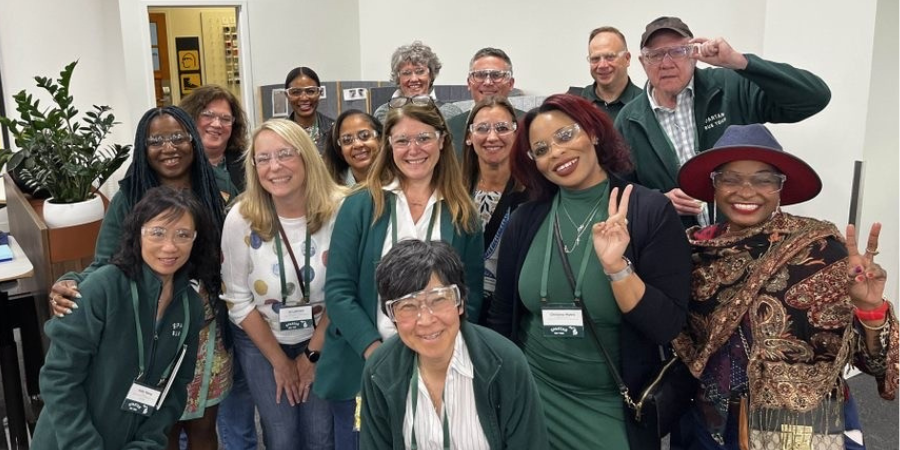Faculty Reflect on Spartan Bus Tour
October 29, 2024
 Last week, President Kevin Guskiewicz and a delegation of faculty and administrators embarked on the inaugural Spartan Bus Tour, exploring the breadth and depth of the university’s research, outreach and education impact.
Last week, President Kevin Guskiewicz and a delegation of faculty and administrators embarked on the inaugural Spartan Bus Tour, exploring the breadth and depth of the university’s research, outreach and education impact.
Several College of Human Medicine faculty were among more than 50 participants who explored 15 notable locations across West Michigan. Reflecting on the experience, they agreed the Bus Tour was an invaluable opportunity.
“It was both humbling and invigorating,” said Felicia Eshragh.
As director of implementation at the Flint Registry, Eshragh said the tour was an opportunity to learn more about working with community members to solve public health challenges. In particular, she said the PFAS remediation site in Rockford had a strong correlation to the challenges Flint has faced through the water crisis.
“Each stop was unique and impactful,” said Jeff MacKeigan, PhD, professor in the Department of Pediatrics and Human Development, and senior advisor with the Office of Research and Innovation.
 MacKeigan was drawn by the opportunity to engage directly with diverse communities across West Michigan. He said the tour allowed him to build stronger connections with stakeholders which is “essential for advancing our research and community engagement efforts.”
MacKeigan was drawn by the opportunity to engage directly with diverse communities across West Michigan. He said the tour allowed him to build stronger connections with stakeholders which is “essential for advancing our research and community engagement efforts.”
For others, the three-day excursion also was a chance to build deeper connections among colleagues. Natoshia Cunningham, PhD, associate professor in the Department of Family Medicine, started her faculty position in 2019, just before the pandemic, and said those early years were isolating.
“Even now, our ‘new normal’ is often physically removed from others,” said Cunningham. “I loved the idea of building community both within MSU and with outside community members…you really get to know people in a unique and meaningful way after 3 days together on a bus!”
It was MSU’s statewide footprint in health care that attracted Christopher Contag to MSU eight years ago. The bus trip was a chance to him to get a broader look at MSU’s statewide impact.
“I wanted to learn more and the Spartan Bus Tour seemed like a tremendous opportunity to better understand the size and scope of Sparty’s footprint in Michigan,” said Contag, PhD, director of the Institute for Quantitative Health Science and Engineering. “I was blown away by what I had learned.”
Contag said each stop offered a window into the ways MSU is “integrated into the fabric of Michigan” — from Camp Grayling, where Michigan plays a role in national defense; to Muskegon High School, where MSU is helping the next generation of teachers and doctors; to the statewide partnerships between MSU Extension and farmers.
For Cunningham, the Herman Miller furniture manufacturing facility was a pleasant surprise as it relates to her work. “I sometimes (mistakenly) think business practices are separate from practices we use in research,” she said. “However, our research team members and study participants should all experience the same feelings I did at Herman Miller.” She was impressed by their rigorous scientific methods for product testing and approach to innovation.
 A common theme heard from participants was their deepened understanding of the ways Spartans can work together for the greater good.
A common theme heard from participants was their deepened understanding of the ways Spartans can work together for the greater good.
“Each stop emphasized how important it is to connect research and academics to the greater community,” said Eshragh. “None of our work occurs in a vacuum, and the connection opportunities are something we should all work harder at.”
“We are all interconnected. Spartans, with community partners, are working to solve the greatest challenges impacting our communities,” said Cunningham. “Things like climate change, pollution, and emerging technologies, impact so many industries, our access to food, and our lives. Spartans are committed to solving global challenges with innovative and community-focused solutions.”
Check out the Spartan Bus Tour during its stop at the Grand Rapids Research Center

